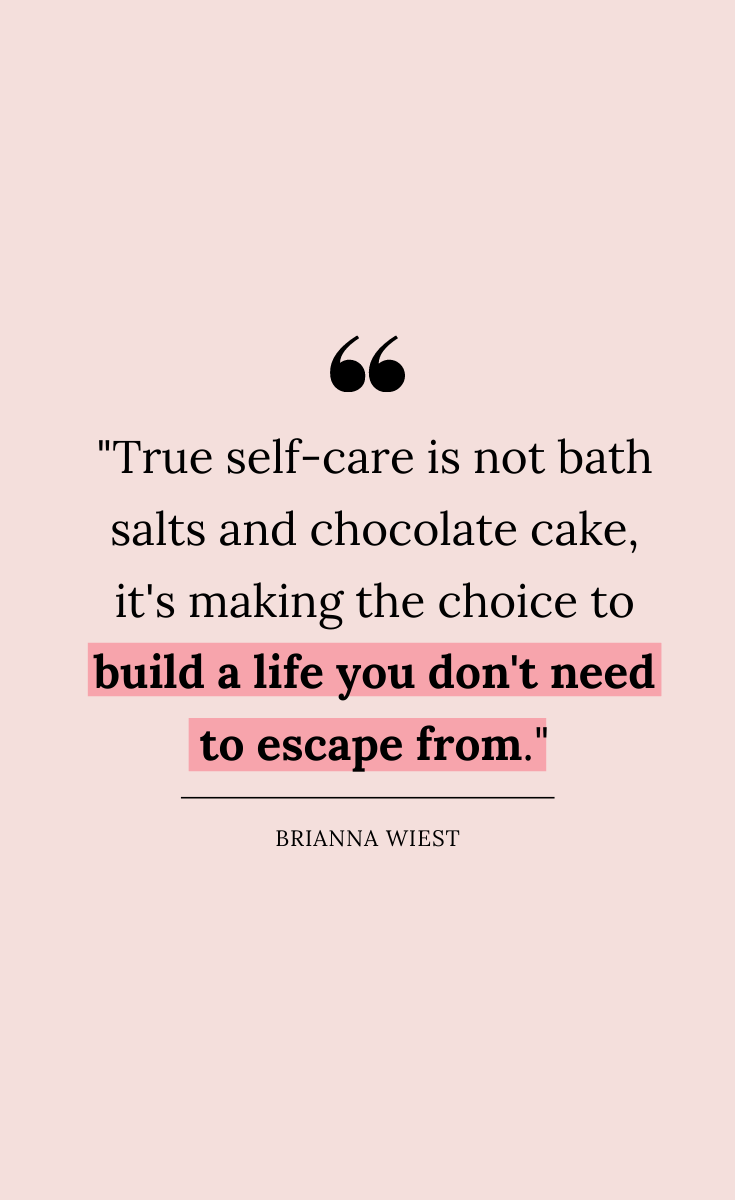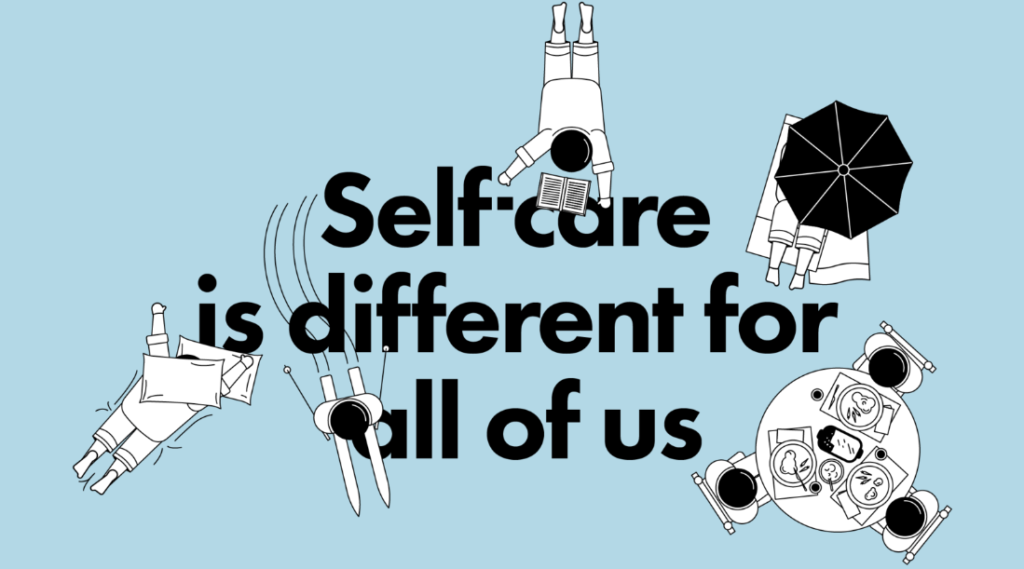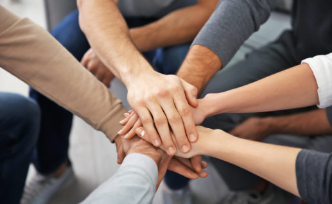
When you think of self-care, you think of manicures, bubble baths, face masks, candles, and crystals. You think of the self-care that dominates: consumerism.

This consumerism is a guise for its underlying issue and feeds off of the already existing insecurities that consumerism has always preyed on. “Self-care” is a new way for brands to claim they can solve real issues. Self-care is no cure-all to mental health issues, and implying so is extremely damaging. Self-care is also not one-size-fits-all as consumerism coaxes you into believing. Mandy Froehlich, author, educator, and advocate for change argues that what is actually needed is “a complete systemic shift in the way that we expect people to work through really difficult times.”
Self-care, as in the action of caring for your well-being, has been practiced since before history. However, it was the election of 2016 that changed what self-care would mean, and what it would transform into years later. Americans looked up the term twice as often as in years past during the week after the election.
Self-care as a term came to be in the 1950s, originally applying to healthcare and encompassing actions such as personal grooming and exercise as actions that patients could take for autonomy over themselves. The contemporary interpretation of self-care, however, stems from the Back Panther Party (BPP) of the 1970s. The BPP encouraged Black people to take care of themselves for their health and well-being, and that in doing so they may be more enabled to stay resilient when faced with systemic and medical racism on a daily basis. The BPP also uplifted community care in setting up “survival programs,” which included food distribution, healthcare facilities, and education programs. They called this “revolutionary intercommunalism”.
In a system that wouldn’t provide Black people with basic social services, the BPP saw that survival meant taking care of oneself and taking care of one another. In 1988, the collection of essays titled A Burst of Light was published by the activist Audre Lorde, capturing the spirit of this self-care, writing that, “caring for myself is not self-indulgence, it is self-preservation, and that is an act of political warfare.” In taking care of yourself, you also take care of your community. Community care focuses on the impact you have on those around you when you do honor yourself.
So let’s switch up the language. Frankly, the term “self-care” has become so overused that a new term would be a lot more effective: community care. Self-care has lost its purpose, but community care has its roots in revolutionary wellness for all. Incorporating the term community care into conversations about mental wellness will more accurately deliver an essential course of action.

Despite the portrayal of self-care in mass media, its essence boils down to taking actions that bring you peace. While creating art, meditating, listening to an audiobook, or learning something new may be some examples of activities that are helpful for one’s well-being, sometimes, they don’t effectively work at all. Sometimes, self-care isn’t accomplished through typical actions, but instead through interpersonal connection.
It can be interaction with friends and family; it can be learning more about the connection you have with your culture; it can be taking a walk with friends; it can be a movie night or game night; these are some examples, but it is no one thing for all people. Stephanie Evans, a professor of Black women’s studies at Georgia State University emphasized, “It is not either individual or collective. It is both.” Individual self-care on its own isn’t sufficient enough unless it is in combination with community care.

Self-care has gone off course from its original intentions. The reality is that self-care requires both supporting oneself through alone time and inner work, and also receiving support from loved ones by spending time with them. This is community care, where both need to work in conjunction. Wellness isn’t a spa day or bubble bath– these things only work as temporary distractions. Instead, it’s a community practice of promoting mental wellness among all– something that can’t ever be bought.
Sources:
https://hsnews.org/the-predatory-nature-of-the-self-care-industry-today/
https://www.mandyfroehlich.com/post/the-fight-self-care-vs-systemic-change
